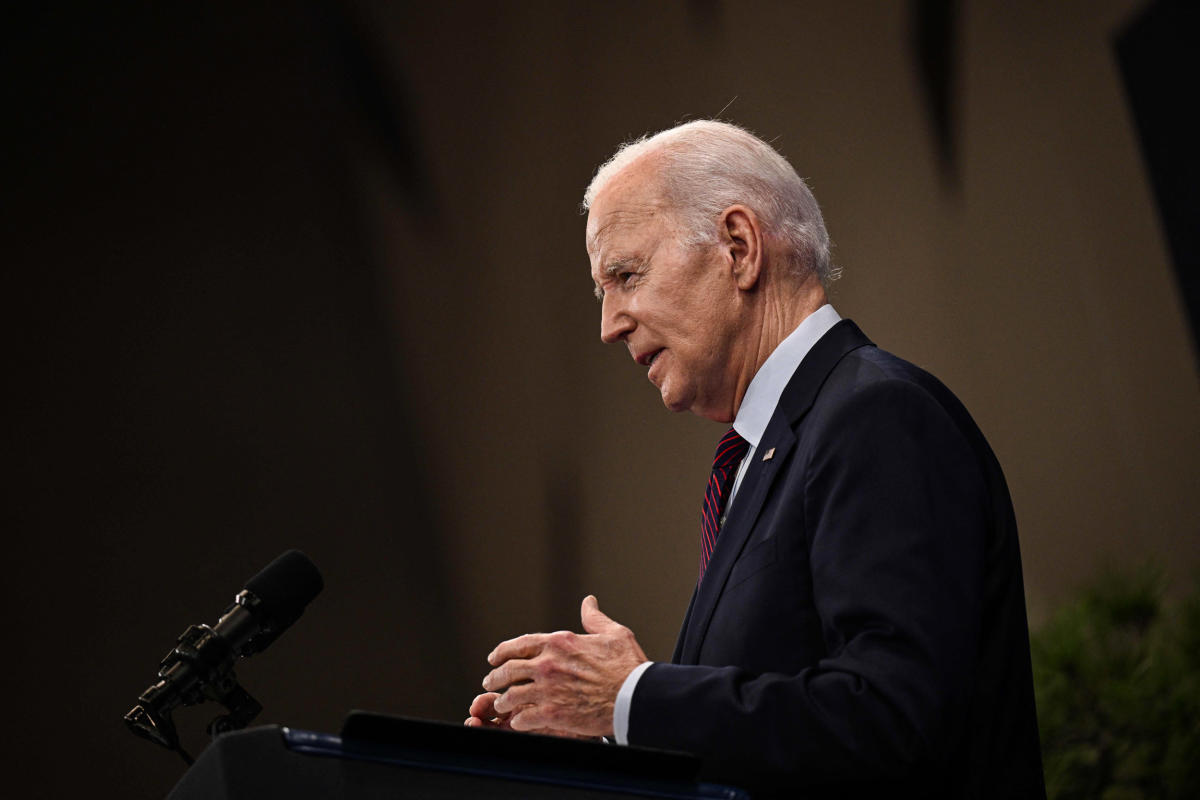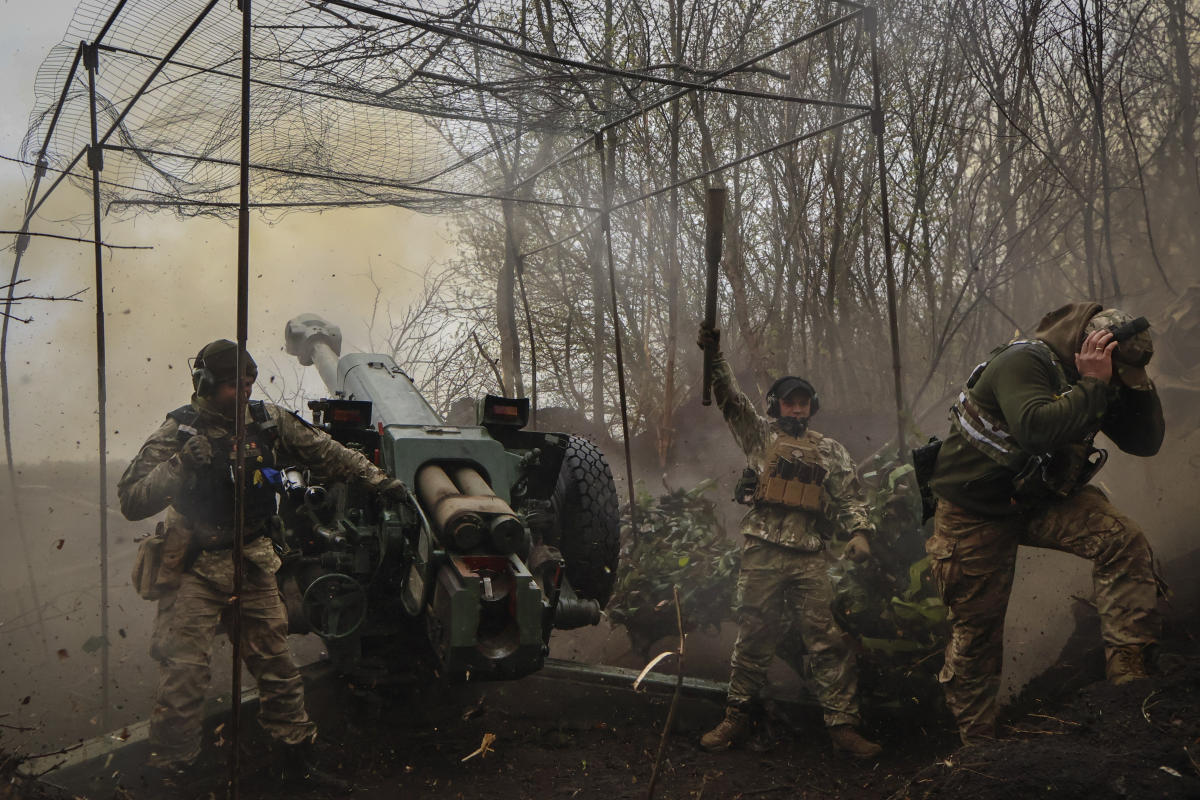HIROSHIMA, Japan — With less than two weeks left before the nation reaches the point where it can no longer pay its debts, President Joe Biden made it clear Sunday that he remains far apart from congressional Republicans in budget talks.
At a news conference at the end of the Group of Seven summit in Hiroshima, Biden said that the two sides have not been able to resolve stark differences over spending and taxes, despite intensive negotiations in recent weeks.
As he flew home on Sunday, Biden said he planned to talk with House Speaker Kevin McCarthy and hoped that the California Republican was waiting for him to return so that the two could negotiate directly and make sustained progress.
While Biden was in Japan for part of the past week, senior White House aides led a series of on-and-off talks with House Republicans that failed to produce a breakthrough.
Biden, who took part in Zoom calls on the debt ceiling with aides back home, described a numbing set of talks replete with proposals and counterproposals that he said sounded “ridiculous.” Political gamesmanship on the part of far-right MAGA Republicans has also infected the negotiations, he said.
“I think there are some MAGA Republicans in the House who know the damage it would do to the economy,” he told reporters. “And because I am president and a president is responsible for everything, Biden would take the blame. And that’s the one way to make sure Biden is not re-elected.”
The brinksmanship could soon become quite costly. Treasury officials say the U.S. will be unable to pay its bills by as early as June 1 unless Congress raises the $31.4 trillion debt ceiling.
If the government winds up defaulting on its debt, economists predict that financial markets would sink, jobs would disappear and interest rates would rise, making it tougher for Americans to buy houses and pay bills. Were that to happen, Biden said he would not be the only one to face the voters’ ire.
“No one would be blameless,” he said.
Biden opened the news conference with a familiar recitation of why the Republicans’ budget plan falls short. The deep spending cuts that GOP lawmakers envision would preserve tax breaks for wealthy oil companies while eliminating tens of thousands of law enforcement and teaching jobs, he said.
He added that he was prepared to cut spending but also wants to raise tax revenues as part of a balanced plan to reduce deficits.
“It’s time for Republicans to accept that there’s no bipartisan deal to be made solely — solely — on their partisan terms,” he said. “They have to move as well.”
So far, the Republicans have held firm. Though Biden has said he won’t negotiate over lifting the debt ceiling, the White House appears to be doing just that. Republicans have gained considerable leverage by opting not to raise the debt ceiling until they wring a commitment from Biden to make sweeping cuts in federal spending.
Even as he practiced diplomacy abroad, Biden couldn’t escape the budget fight back home. His counterparts were curious about the standoff and asked about it during the three-day summit.
“I would just say that countries are keenly interested in what is a significant story,” Jake Sullivan, the White House national security adviser, told reporters over the weekend. “And the president has been able to tell them that he believes that we can get to a good result here.”
The main business of the summit was combatting threats coming from China and Russia. If the conference had a star attraction, it was neither Biden nor any of his counterparts from France, Italy, Germany, Canada, Australia and the United Kingdom.
Rather, it was Volodymyr Zelenskyy, the Ukrainian president who flew in on a French plane under tight secrecy as battles raged in his homeland around the eastern city of Bakhmut.
“They’ve destroyed everything. There are no buildings. It’s a pity. It’s a tragedy,” Zelenskyy said of Bakhmut ahead of a meeting with Biden on Sunday. “There is nothing on this place, so — just ground and — and a lot of dead Russians.”
Zelenskyy hadn’t been expected to attend in person. When he showed up Saturday in his green military fatigues, the summit’s focus plainly shifted, a senior Biden administration official told NBC News Sunday.
China receded as an agenda item and Ukraine became the dominant issue, the official said, speaking on condition of anonymity to talk more freely.
They added that some G7 participants were unhappy given the many threats and challenges that China poses.
Simply by showing up, Zelenskyy is “going to put pressure on all the key players in the G7 to continue to stand with Ukraine,” the official, said. “It’s some of the most effective diplomacy we’ve seen on the global stage.”
“Everyone recognizes that the challenge of the Ukrainians is dramatic and top of mind,” the official added. “But there are also urgent matters in the Indo-Pacific that require attention and they [other G7 participants] don’t want those drowned out by the visit.”
That’s a familiar and frustrating dynamic for U.S. officials who believe China warrants more attention. When Barack Obama was president, he promised a “pivot to Asia” in which the U.S. would shift its attention to a part of the world that poses both grave national security risks and enormous economic opportunity. Fast-moving events in other parts in the world often got in the way — much as the war between Russia and Ukraine is interceding on Biden’s watch.
Biden greeted the Ukrainian leader warmly. Before posing for a group photo with the other leaders on Sunday, Biden threw an arm around Zelenskyy.
“Zelenskyy’s ability to make it personal and make it immediate and real is an intangible factor, but it has an impact,” said Daniel Fried, a former U.S. ambassador to and a fellow at the Atlantic Council. “It won’t change things on the battlefield, but it does give energy to the political support for Ukraine.”
Later Sunday, the two presidents held a meeting at which Biden formally announced a new $375 million package of military aid to Kyiv that includes ammunition, artillery and armored vehicles.
“Together, with the entire G7, we have Ukraine’s back,” Biden said as the meeting began. “And I promise, we’re not going anywhere.”
Though Biden had once opposed transferring F-16 fighter jets to Ukraine for fear of escalating the war, he has since had a change of heart. The U.S. has now agreed to help train Ukrainian pilots to fly the F-16. At the news conference, Biden said he wasn’t worried that the planes would widen the conflict.
“I have a flat assurance from Zelenskyy that they will not, they will not use it to go on and move into Russian geographic territory,” he said.
This article was originally published on NBCNews.com








